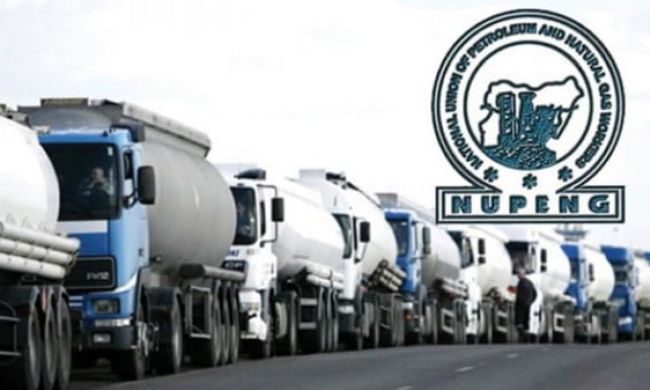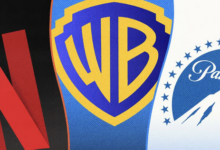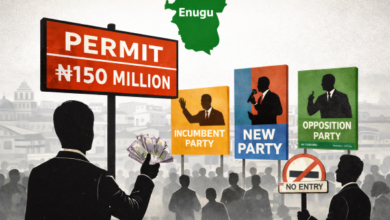ADITOP tackles NUPENG over Extortion as Dangote faces Union Row

Abuja/Lagos — A fresh fault line has opened in Nigeria’s downstream sector. ADITOP accuses NUPENG of extortion and excessive levies even as the union orders its Petroleum Tanker Drivers (PTD) to stop loading nationwide over alleged anti-labour practices at Dangote Refinery. A tripartite conciliation convened by the Minister of Labour and Employment, Muhammadu Dingyadi, was moved up to 10:00 a.m. to stave off disruption.
The Association of Distributors and Transporters of Petroleum Products (ADITOP) escalated its long-running grievance with the Nigerian Union of Petroleum and Natural Gas Workers (NUPENG), alleging a pattern of extortion and excessive levy collection across depots and highways. In a Monday statement from Abuja, Alhaji Lawal Dan-zaki, ADITOP’s National President, distanced the group from NUPENG’s strike directive and urged the Federal Government to “support the Dangote Group against the antics of the unions.”
At the heart of the row is NUPENG’s protest against what it calls anti-union practices at Dangote Refinery, including a recruitment condition barring newly hired CNG truck drivers from joining oil and gas unions. NUPENG says the policy violates Section 40 of the Constitution, the Labour Act, and ILO Conventions 87 and 98. The union has warned of imminent nationwide fuel scarcity and instructed its PTD branch to stop loading from depots pending resolution.
As tensions rose, the Ministry of Labour and Employment rescheduled a tripartite conciliation with stakeholders to 10:00 a.m. (earlier than an initial 3:00 p.m. plan) to head off a shutdown. A ministry letter dated Sept. 6, 2025, signed by Falonipe Amo, Director of Trade Union Services and Industrial Relations, invited the parties. By the new start time, however, union leaders and other stakeholders were still in transit from Lagos to Abuja, delaying talks.
What ADITOP alleges
Dan-zaki claims NUPENG and affiliates are “holding tanker owners to ransom” and disrupting the supply chain through multiple charges:
- ₦1 per litre allegedly collected from every product loaded at depots.
- An additional ₦1 per litre allegedly collected by the PTD on any marketer’s loaded product.
- Loading charges of ₦80,000–₦100,000 per truck.
He characterized these as outright extortion and economic sabotage, noting ADITOP has filed petitions over five years to the Inspector-General of Police, DSS, National Security Adviser, and the Secretary to the Government of the Federation. ADITOP further alleged that NUPENG “feeds on these levies while remitting zero taxes,” and said the union resorts to nationwide strikes when questioned.
What NUPENG and labour allies say
NUPENG counters that Dangote Group is pursuing “crude and dangerous anti-union practices”, maintains low wages relative to sector standards, and treats staff beneath acceptable norms. The union insists drivers must be free to join recognized oil and gas unions, not “company unions”.
The Nigeria Labour Congress (NLC), led by Joe Ajaero, has thrown its weight behind NUPENG, placing affiliates on solidarity alert and urging government to ensure compliance with national and international labour laws. The NLC warns that allowing anti-union conditions to stand would set a dangerous precedent for industrial relations.
BRANDECONOMY note: Allegations on both sides are claims, not adjudicated facts. The conciliation outcome and any formal regulator findings will determine remedies and next steps.
Why It Matters (Nigeria’s Downstream)
- Supply risk: A sustained PTD loading halt is a direct pathway to fuel scarcity and price spikes—particularly across Lagos, Abuja, Port Harcourt and inland depots.
- Rule of law vs. market continuity: The dispute pits freedom of association and labour standards against the need to keep essential fuel logistics flowing.
- Investor signal: How the state manages a showdown involving Dangote Refinery—a flagship industrial asset—will be read by investors as a test of labour governance and regulatory balance.
- Cost stack: If the alleged per-litre levies and truck charges are pervasive, they add to the landing cost at the pump and amplify inflationary pressure.
By the Numbers (as alleged/announced)
- ₦1/litre: levy allegedly collected from each depot loading.
- ₦1/litre: additional levy allegedly collected by PTD from marketer loads.
- ₦80k–₦100k/truck: alleged loading charge band.
- Date anchors: Ministry invitation Sept. 6, 2025; conciliation rescheduled to 10:00 a.m.; PTD loading stop directive from Monday.
- Scope risk: All domestic depots and routes served by PTD if the directive holds.
Legal & Policy Lens
- Constitution Section 40: Freedom of association and unionization.
- Labour Act: Governs employment terms and collective bargaining.
- ILO Conventions 87 & 98: Freedom of association; right to organize & bargain collectively.
- Nigerian Midstream & Downstream Petroleum Regulatory Authority (NMDPRA): Oversight on market operations, supply integrity, and depot/retail compliance.
- Ministry of Labour and Employment: Statutory conciliation and dispute resolution.
Stakeholder Map
- ADITOP (Lawal Dan-zaki): Seeks relief from alleged levies; urges FG support for Dangote; opposes strike.
- NUPENG/PTD: Pressing anti-union and wage grievances; indefinite strike directive pending talks.
- Dangote Group/Refinery: At the centre of unionization and wage claims (company response not in this brief).
- NLC (Joe Ajaero): Solidarity with NUPENG; calls for full compliance with labour laws.
- Labour Ministry (Muhammadu Dingyadi) & TUSIR (Falonipe Amo): Conveners of tripartite conciliation.
- NMDPRA: Market continuity, consumer protection, and anti-disruption oversight.
Scenario Outlook (48–72 hours)
- Rapid truce: Conditional suspension of loading halt following written undertakings on union access and wage review timelines.
- Partial disruption: Loading resumes unevenly; queues and spot shortages in major cities; premium on trucking spreads.
- Protracted standoff: Broad scarcity risk; pressure on NMDPRA to activate essential-service protocols and enforce minimum supply.
BRANDECONOMY Take
Nigeria needs two guardrails at once—protect freedom of association and de-risk fuel logistics. A verifiable conciliation framework—covering union access, wage benchmarking, and grievance timelines—must run alongside an enforceable commitment to keep depots wet and trucks moving.
Execution test:
- Publish a time-bound MoU from the conciliation (who does what, by when).
- Audit and, where illegal, disallow per-litre third-party levies that inflate pump prices.
- Require transparent contractor standards at refineries and logistics firms (union access, safety, training, pay bands).
- Stand up a rapid-response desk (Labour + NMDPRA) for real-time incident resolution to avoid sector-wide shutdowns.
Bottom line: The case is bigger than one refinery or one union. Nigeria’s energy logistics must be predictable and lawful—with worker rights respected and arbitrary costs squeezed out of the supply chain.
FAQ
What triggered the new strike threat?
NUPENG’s protest over alleged anti-union practices at Dangote Refinery, including conditions barring drivers from joining oil and gas unions.
What is ADITOP’s main complaint?
Alleged ₦1/litre levies (plus another ₦1/litre via PTD) and ₦80k–₦100k per-truck loading charges they label extortion and economic sabotage.
What is government doing?
The Labour Ministry shifted a tripartite conciliation to 10:00 a.m. to avert disruption; stakeholders were en route to Abuja at the new time.
Could fuel become scarce?
Yes—if the PTD loading halt holds. The risk rises with each day depots are idled.












